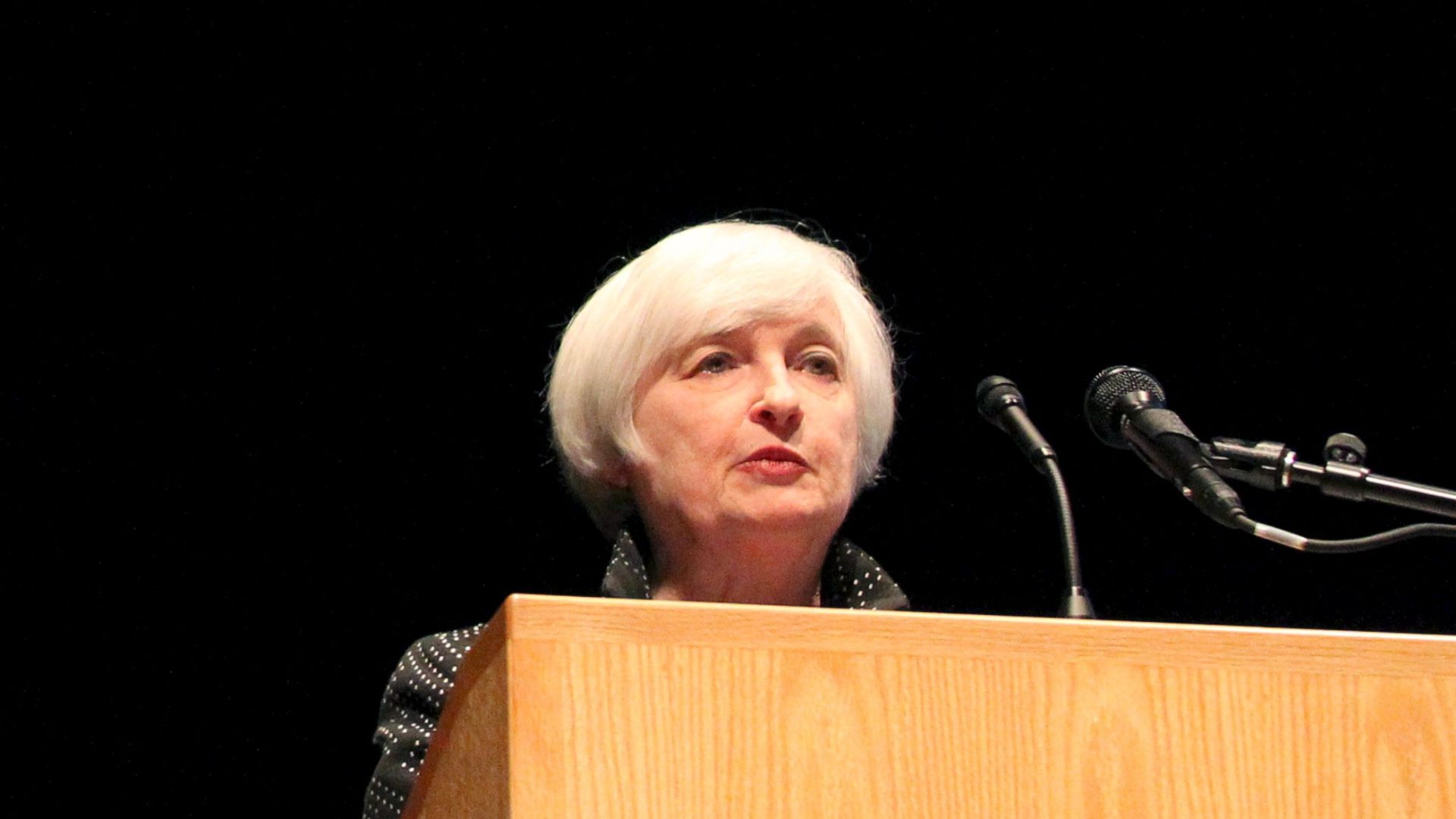(Reuters) The last day of U.S. Secretary Janet Yellen’s trip to China coincided with the strongest retort yet from Beijing officials over her claims that China is flooding global markets with cheap goods, particularly in the new green industries.
As Yellen laid out plans to formalise dialogue with China over excess industrial capacity in electric vehicles (EVs), solar panels and batteries, saying Washington would not accept U.S. industry being “decimated”, the Chinese finance ministry issued a statement saying it had already “fully responded” to her concerns.
Commerce Minister Wang Wentao, at a roundtable meeting with Chinese EV makers in Paris on Monday, said U.S. and European assertions of excess capacity were groundless, adding China’s rise in these industries was driven by innovation and complete supply chain systems, among other factors.
China’s latest response, analysts say, centres on the idea that its production system is simply more competitive, a sharp change in tone from only a month ago when officials including Premier Li Qiang sounded their own warnings on overcapacity.
The strong pushback from Beijing contrasts with the generally warm interactions between Yellen and Chinese officials during her trip, leaving the two largest economies further apart on the hottest dispute in global trade, which could add to tensions.
“They cannot win the race, so they try to slow it down,” said Li Yong, chief researcher at D&C Think, a Chinese think tank, referring to the West’s rhetoric on overcapacity.
“We just do our things, they can do whatever they want – the knife is in their hands.”
Both sides believe they have solid, data-supported arguments not to back down.
The core criticism coming primarily from Washington and Brussels is that state-led support for manufacturers, coupled with depressed domestic demand, is pushing excessive Chinese supply onto global markets.
This drives down prices.
Volume growth weighs on Chinese solar and batteries export prices
Prices have fallen sharply in two of the green energy industries dominated by China. In lower-end industries prices have been more stable.
Year-on-year growth in volume and value ($1000) of Chinese exports
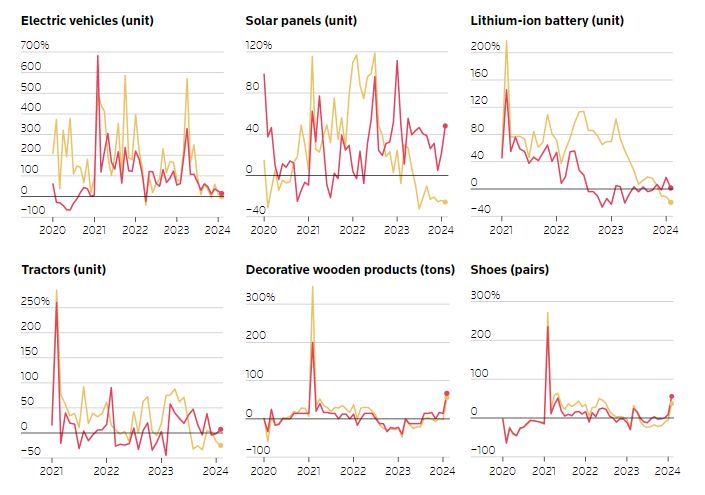
Consequently, it threatens U.S. and EU firms which survive on profits rather than what Western officials argue is a drip-feed of state resources in China. And, it can complicate longer-term investment decisions.
Growing numbers of loss-making manufacturers in China
China’s industrial complex is expanding, but many firms cannot cope with the heightened competition.
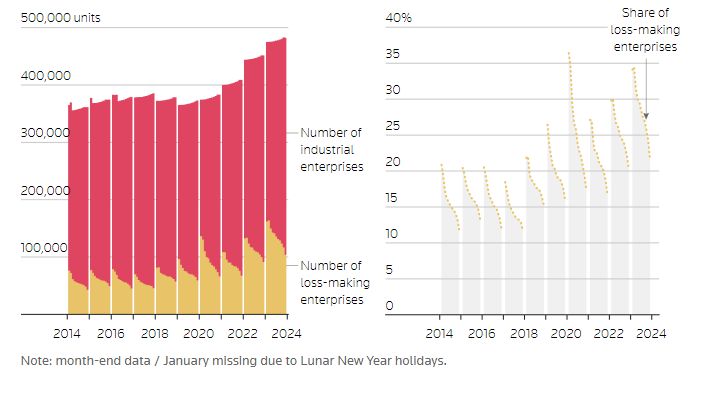
While China denies subsidies and points to U.S. and EU government programmes to support their own industries, its critics take a wider view of state support that incorporates cheap loans, land use, huge infrastructure investment and other benefits that span across a fully-integrated supply chain.
EU trade officials have singled out the huge resources redirected by China’s state-dominated financial system from the ailing property sector to its sprawling manufacturing complex, as Beijing looks for other economic growth drivers.
China‘s bank lending to manufacturing vs property
PBOC channels more credit into the manufacturing sector at the expense of the property sector.
Year-on-year lending growth at the end of each quarter
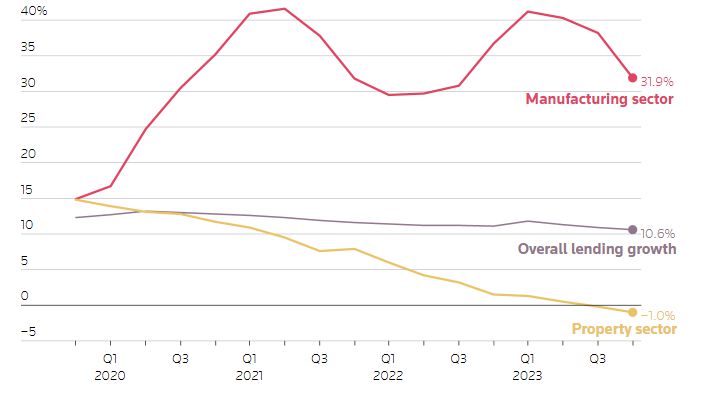
For its part, China says industrial overcapacity is not unique to the world’s second-largest economy.
“The so-called ‘overcapacity’ is a manifestation of the market mechanism at work, where supply-demand imbalance is often the norm,” vice finance minister Liao Min told local media.
“This can occur in any market economy system, including in the United States and other Western countries, where it has happened multiple times in history”.
Industrial capacity utilisation in China is lower than in the United States or Europe, but not by much.
China’s capacity utilisation lags U.S. and EU rates, but only slightly
As U.S., EU industries find it harder to compete with their Chinese rivals, Western officials say China’s state-led, investment-heavy manufacturing model is unfair.
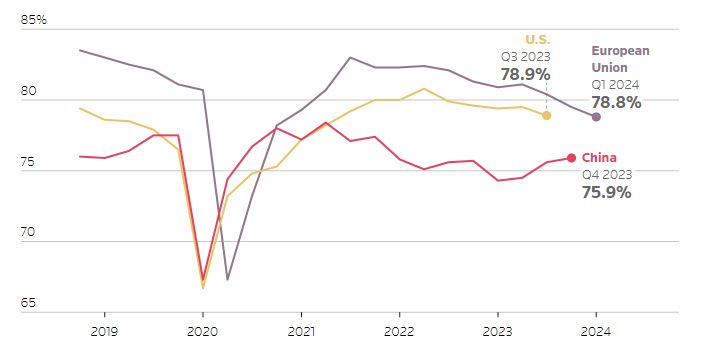
Also, China asserts supply and demand should be viewed from a global perspective, particularly given Western criticism focuses on industries key to climate goals for the entire planet.
That argument resonates.
“I’m very sceptical about this idea of overcapacity,” Nicholas Lardy, senior fellow at Peterson Institute told a financial forum in Hong Kong.
“If you think about it, it means every country should only produce what it consumed itself. That means no trade. Where would we be if there was no trade?”
It’s not a new debate. More than a decade ago, Washington complained that the U.S. rust belt was crippled by Chinese overproduction of steel, which had forced China to dump it at very low prices.
But China can argue its output is more in tune with global demand than it was back then. China’s inventory levels have ticked up during the COVID-hit years, but remain well below levels seen in the 2010s.
China‘s inventories pick up pace
Inventory levels in China are picking up but still remain much lower than the historical norm.
Inventories as a percentage of GDP
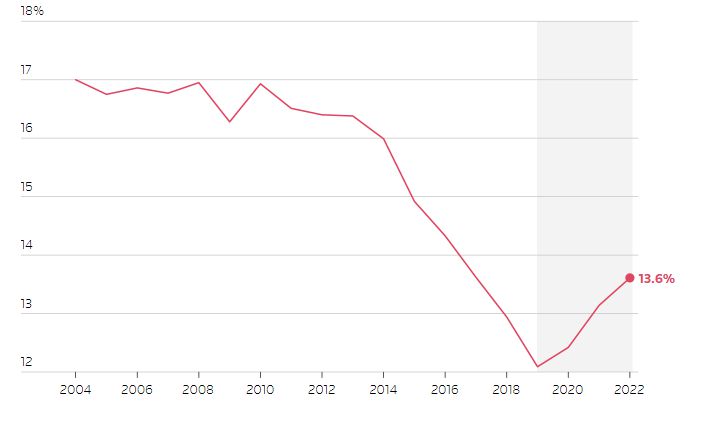
China views the “new three” industries of electric vehicles, batteries and solar power as key for its development.
In 2023, exports of the “new three” totalled 1.06 trillion yuan ($146.6 billion), up 29.9% year-on-year, official data showed. But they accounted for only 4.5% of China’s total yuan-denominated exports last year, so those on Beijing’s side of the debate see the West’s focus on them as hypocritical.
“U.S. and Europe have a bit of a gangster logic,” said Wang Jun, chief economist at Huatai Asset Management.
In the automotive sector, China argues overcapacity is concentrated in combustion-engine cars rather than EVs and says market mechanisms will eventually weed out weak players.
Moreover, some models by Chinese EV maker BYD sell in Germany for more than double their price in China – an argument that critics use against Europe’s concerns over unfair pricing.
Capacity utilisation of top NEV brands
Capacity and production of vehicles in 2023.
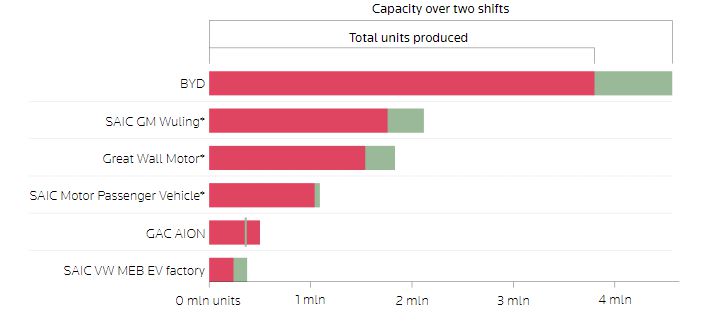
Notes:
1. The automakers with * are flexible to produce NEV cars and ICE cars on the same production line. The capacity thus refers to both NEV and ICE cars.
2. GAC AION produced more than their capacity since they could extend their shifts or add new shifts.
3. BJEV, Changan, Dongfeng are yet to release 2023 annual reports.
China also says many of its firms are more innovative, hence more competitive. It can point to surpassing the United States as world leader in patent applications.
Steady rise in patent applications from China
Annual patent cooperation treaty applications
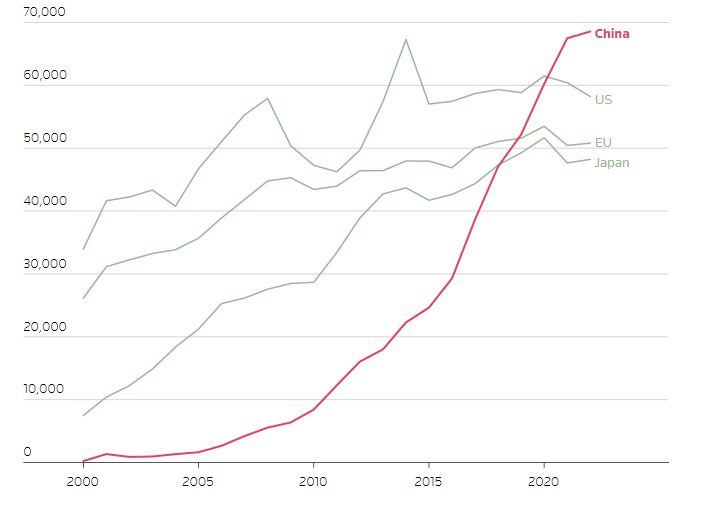
One industry where global demand does not keep up with Chinese production, though, is solar.
Xuyang Dong, China energy policy analyst at Climate Energy Finance in Sydney, estimates China’s wafer, cell and module capacity coming online in 2024 is sufficient to meet annual global demand now through to 2032.
China’s solar panel supply chain faces overcapacity at every stage
2023 projections by China Photovoltaic Industry Association

“If you think of it from this perspective, the Chinese government is subsidising the whole world’s green transition,” said Yue Su, principal China economist at the Economist Intelligence Unit.
“Whether this is fair to EU manufacturers or workers is a different question.”
“Having said that, even if the West increases tariffs, I still foresee that China is going to dominate in many of these industries.”
Additional reporting by
Kevin Yao, Joe Cash, and Ellen Zhang





